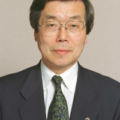Issues Facing Japan after The Upper House Election

Komine Takao, Professor, Graduate School of Regional Policy Design, Hosei University
In the Upper House election held on July 10, the ruling Liberal Democratic Party and Komeito emerged victorious with more seats. This means the ruling party now maintains a stable majority in both chambers of the Diet, paving the way for Prime Minister Shinzo Abe’s cabinet to enact policies it has essentially devised on its own with a high degree of certainty. The question is what kinds of economic policies the Abe cabinet will expend this political capital on moving forward.
In terms of his approach to implementing policy following the election, Abe has indicated a willingness to accelerate his economic program, known as Abenomics. However, if that means taking the fiscal and monetary policies of the sort pursued to date to the next level, it would spell danger. In terms of monetary policy, it has become clear that the policies pursued so far, namely the large-scale increase in base money and the application of negative interest rates, have had little effect. We have been put even farther away from achieving the targeted 2% rate of increase in the consumer price index. Further advancing the monetary policies implemented to date will likely have no effect, and down the road, the process toward normalization would become increasingly difficult.
In terms of fiscal policy, following the election Abe immediately ordered the formulation of large-scale economic measures, and at the beginning of August finalized an economic policy package totaling some 28 trillion yen (equivalent to around 5.4% of nominal GDP). A supplementary budget will even be drawn up to pay for it. When government spending is increased, the growth rate at the time rises, but once the period of expenditure ends the effects disappear, and all that is left is a fiscal deficit.
Given this, what should be done about economic policy moving forward? I believe that the Abe administration should leverage the political capital it gained in these latest elections to rebuild Abenomics in the direction outlined below.
First, the relationship between macroeconomic policy objectives and policy measures needs to be reexamined. Since macroeconomic variables such as consumer prices and economic growth rates are affected by global economic trends and a host of other factors, they have never been something that can be controlled through economic policy alone. If, despite this, we commit to “achieving the rate of increase in the consumer price index to 2% within two years” and try to achieve that through sheer force, we will rush headlong towards excessive monetary easing that produces scant positive effects. Similarly, while Abe has declared the goal of achieving a nominal GDP of 600 trillion yen by the year 2020, there are concerns that focusing on rigid policy objectives can lead to the enacting of excessive stimulus measures from a fiscal standpoint.
In retrospect, it could be said that the economic debate up to now has placed too great an emphasis on the economic policy of Abenomics both as propaganda and ammunition against detractors. During the Upper House elections, the ruling party touted developments such as the improved employment situation as effects of Abenomics, while the opposition used widening disparity and other trends as fodder for its criticism. But even if the growth rate rises and the economy starts to improve, we cannot attribute all of that to the effects of Abenomics. By the same token, Abenomics is not solely at fault for Japan’s widening disparity.
Since we have seen an ebb and flow of the debate where proponents of Abenomics emphasize its effects and the critics highlight areas that have not benefited, before we realize it, many people may have adopted the overly simplistic view that “control of the economy is contingent upon government policy.” The strong commitments made in terms of policy should be limited to declarations that the government will fulfill its responsibilities to engage in fiscal administration and develop various systems. Macroeconomic indicators should be regarded more flexibly as rough indications to be pursued on a long-term basis.
Second, the perspective of policy implementation should be shifted from a short-term, emergency response-oriented one to one favoring long-term structural reform. The unorthodox monetary and fiscal policy that Abenomics has implemented to date is only rationalized during extraordinary times when the demand-supply gap is too large to be handled with regular policy measures. But now, Japan has already neared full employment. These are not circumstances that could be described as extraordinary.
Looking ahead, priorities need to shift towards long-term structural reform instead of policies that seek to boost demand in the short-term. There are wide and varied opinions as to what the focus of those structural reforms should be, but I believe the emphasis should be placed on reforming the way we work and reforming social security. When examining the many issues we face, among them a declining birthrate, disparity and gender equality, it often comes down to the issue of Japan’s conventional long-term, indefinite and merit-based pay-oriented working systems. With the advance of globalization, technological innovation, a declining birthrate and aging population, Japanese companies are already taking steps towards more flexible working styles. I would like to see the government tackle regulatory reform of working styles to encourage these trends. Similarly, reforming social security is significant in many ways, in terms of fiscal reconstruction, eliminating people’s worries about the future, reducing corporate contributions to social insurance and correcting disparities. We should again seek integrated reform in relation to the consumption tax hike.
Third, instead of just looking at the details of policy, the process by which policies are determined is also in need of reform. The debates that emerged through the latest election were of a nature that overly pandered to public opinion. In light of this, in the future we should do away with politics a little, and give thought to mechanisms that allow for policymaking informed by orthodox economic arguments and policy assessments.
On this point, discussions within the government and central bank need to solicit greater involvement from economists armed with the latest economic knowledge. This would halt the excessive commitments concerning policies and enable more appropriate decision-making based on policy assessments. To take examples from the West, evidence-based policy formation has been promoted in England, and in the United States, an executive order to utilize insights from behavioral economics for policy was issued in September 2015. Little to no such discussions are taking place in Japan, leaving us a lap behind the West.
The approach of hammering out packaged economic measures and growth strategies each year and drawing up supplementary budgets to promote them deserves a second look. Packaged measures are invariably of the something-for-everyone type and tend to contain crowd-pleasing measures, because they end up providing a means to secure budgetary funds for each area. I do not believe it is sufficient to pursue big-boned short-term policy maneuvers on a yearly basis while the nation’s long-term direction is examined only once every several years and then only to specify a basic trajectory.
Translated from an original article in Japanese written for Discuss Japan. [August 2016]




